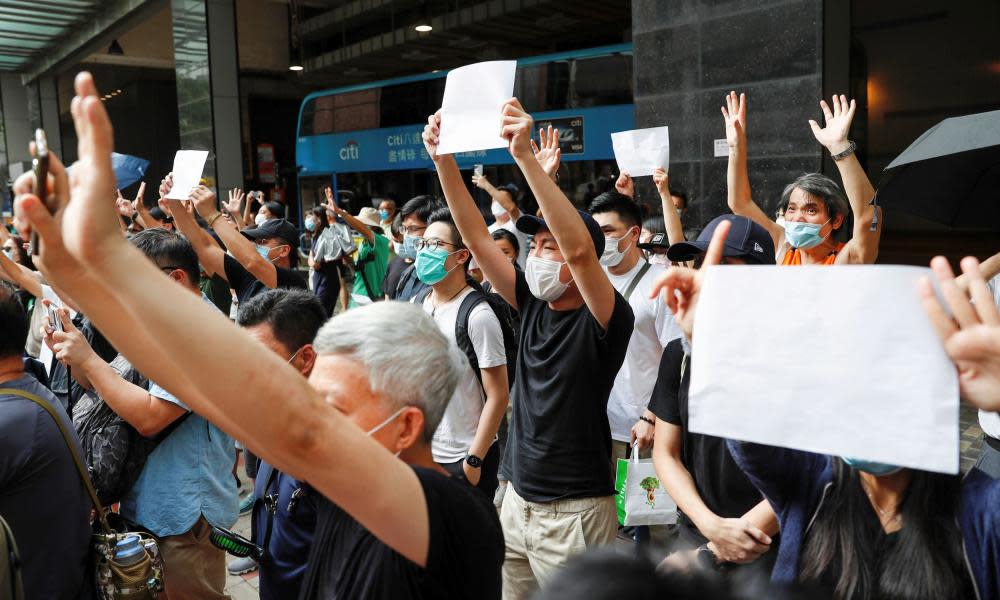Telstra says it will protect clients' data under Hong Kong security law, but has no plans to pull out

Telstra has said it will keep its customers’ data security and integrity its foremost responsibility as the company comes to terms with the controversial new national security law in Hong Kong.
The legislation, which came into effect at the end of last month, allows Hong Kong police to intercept communications, conduct covert surveillance and request information from service providers.
Related: 'This is intolerable': fearful Australians in Hong Kong hasten plans to leave city
It has forced a rethink for non-Chinese companies with operations in Hong Kong on whether to keep customer data onshore, where it may be subject to the new laws. Several tech companies including Twitter, Facebook, Zoom and Microsoft have indicated they will suspend compliance with requests from Hong Kong police.
Telecommunications companies are subject to the laws of the country in which they operate. It was revealed in 2013 that Telstra’s joint-venture Hong Kong business Reach was subject to US national security law with respect to data it holds in the US as part of its massive sub-sea cable network.
Telstra also operates cloud services in Hong Kong, offering co-location of data in the territory.
A spokesman for Telstra said the security and integrity of clients’ data was the company’s “foremost priority and responsibility”.
On Friday, Telstra’s chief executive, Andy Penn, told ABC Radio National the company would rely on legal advice and the advice of Australia’s Department of Foreign Affairs and Trade on complying with requests from Hong Kong, but for now there were no plans to pull out.
“There’s no change, but it is a dynamic situation,” he said. “We’re not reviewing our presence there at the moment … We’re really just following Dfat’s advice.”
At the same time, the Australian government is pushing for legislation to allow Australian companies such as Telstra to comply with orders from countries where agreements are in place to hand over data to law enforcement.
Related: Australia's Hong Kong intervention was hardly strident but that didn't matter to China
However, under that legislation, Australia would be required to enter into agreements on the terms under which police assistance requests would be allowed. An agreement with the US and UK would be the first such deal, with an agreement with Hong Kong much less likely.
The Communications Alliance, which represents Telstra and other tech companies in Australia, told the parliamentary committee reviewing the legislation that none of its member companies had “raised any major concerns with the legislation” but had called for independent judicial oversight of international production orders, particularly those related to interception of data and stored communications.
The legislation and subsequent agreements would replace the various mutual assistance agreements signed with countries around the world. Australia signed such an agreement with Hong Kong in 1997, but that allows Australia to refuse requests in cases related to political or military offences, or the prosecution of someone on the basis of race, sex, religion, nationality or political opinions.

 Yahoo News
Yahoo News 
